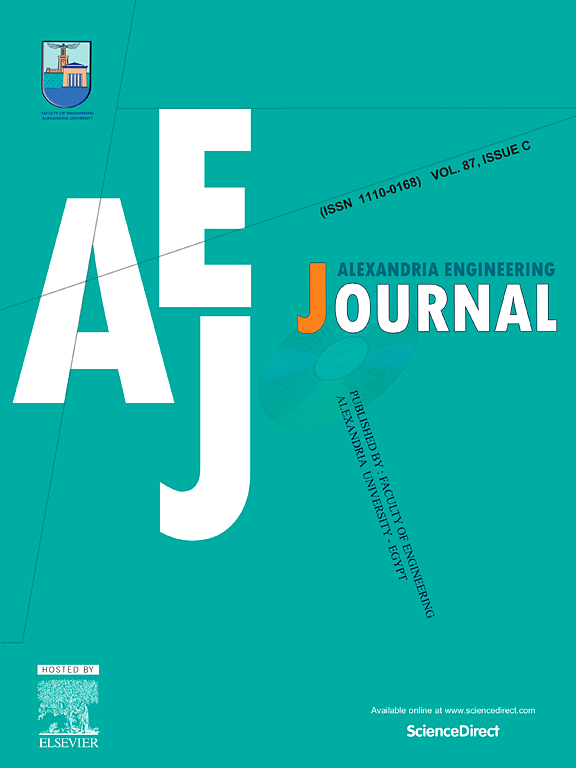Fractional Order Jellyfish Optimizer on PID cascade controller for new born incubator system
IF 6.2
2区 工程技术
Q1 ENGINEERING, MULTIDISCIPLINARY
引用次数: 0
Abstract
This paper presents a cascade PID controller developed for the simultaneous regulation of skin and air temperatures in neonatal incubators, thereby ensuring a neutral thermal environment. A critical challenge in cascade control is the optimal tuning of the primary and secondary controllers. To address this, we introduce a Fractional Order Jellyfish Search Optimizer (FJSO) that leverages fractional calculus to overcome the convergence limitations inherent in the standard jellyfish optimizer. Experimental results indicate that FJSO achieves a 12% reduction in the mean solution value and a 15% improvement in the best-found solution relative to the next-best algorithm, as evidenced by the best, mean, and standard deviation metrics. Furthermore, simulation studies using a Simulink model of neonatal thermal balance demonstrate that the cascade PID controller tuned with FJSO outperforms a single PID controller, particularly in transient and steady-state responses. Performance assessments based on standard control indices, such as the Integral of Absolute Error (IAE) and disturbance rejection, reveal improvements of approximately 17.62% and 79.87%, respectively, over classical control approaches.
基于PID串级控制器的新生培养箱系统分数阶水母优化器
本文介绍了一种级联 PID 控制器,用于同时调节新生儿培养箱中的皮肤和空气温度,从而确保中性热环境。级联控制中的一个关键挑战是主控制器和辅助控制器的优化调整。为此,我们引入了分数阶水母搜索优化器(FJSO),利用分数微积分克服了标准水母优化器固有的收敛限制。实验结果表明,与次优算法相比,FJSO 的平均解值降低了 12%,最佳发现解提高了 15%,最佳、平均和标准偏差指标都证明了这一点。此外,使用新生儿热平衡 Simulink 模型进行的模拟研究表明,使用 FJSO 调整的级联 PID 控制器优于单一 PID 控制器,尤其是在瞬态和稳态响应方面。基于标准控制指标(如绝对误差积分(IAE)和干扰抑制)的性能评估显示,与传统控制方法相比,其性能分别提高了约 17.62% 和 79.87%。
本文章由计算机程序翻译,如有差异,请以英文原文为准。
求助全文
约1分钟内获得全文
求助全文
来源期刊

alexandria engineering journal
Engineering-General Engineering
CiteScore
11.20
自引率
4.40%
发文量
1015
审稿时长
43 days
期刊介绍:
Alexandria Engineering Journal is an international journal devoted to publishing high quality papers in the field of engineering and applied science. Alexandria Engineering Journal is cited in the Engineering Information Services (EIS) and the Chemical Abstracts (CA). The papers published in Alexandria Engineering Journal are grouped into five sections, according to the following classification:
• Mechanical, Production, Marine and Textile Engineering
• Electrical Engineering, Computer Science and Nuclear Engineering
• Civil and Architecture Engineering
• Chemical Engineering and Applied Sciences
• Environmental Engineering
 求助内容:
求助内容: 应助结果提醒方式:
应助结果提醒方式:


